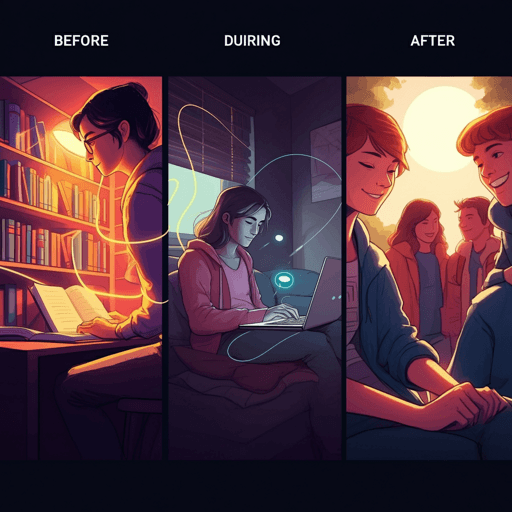
Psychology
Stress, Burnout and Study-Related Behavior in University Students: A Cross-Sectional Cohort Analysis Before, During, and After the COVID-19 Pandemic
V. Dresen, S. Staggl, et al.
During and after the COVID-19 pandemic, students experienced shifts in stress, burnout, study commitment, and coping: stress spiked during the pandemic then returned to pre-COVID levels, depression remained stable, cynicism and academic efficacy were lower in 2020, study commitment and active coping declined, emotional distancing peaked in 2020, and satisfaction with studies was highest post-pandemic. Research was conducted by Verena Dresen, Siegmund Staggl, Laura Fischer-Jbali, Markus Canazei, and Elisabeth Weiss.
Related Publications
Explore these studies to deepen your understanding of the subject.







